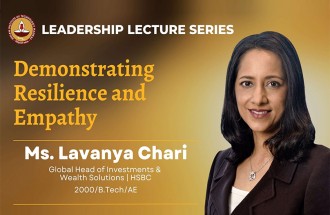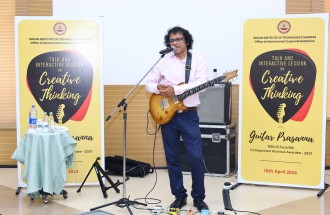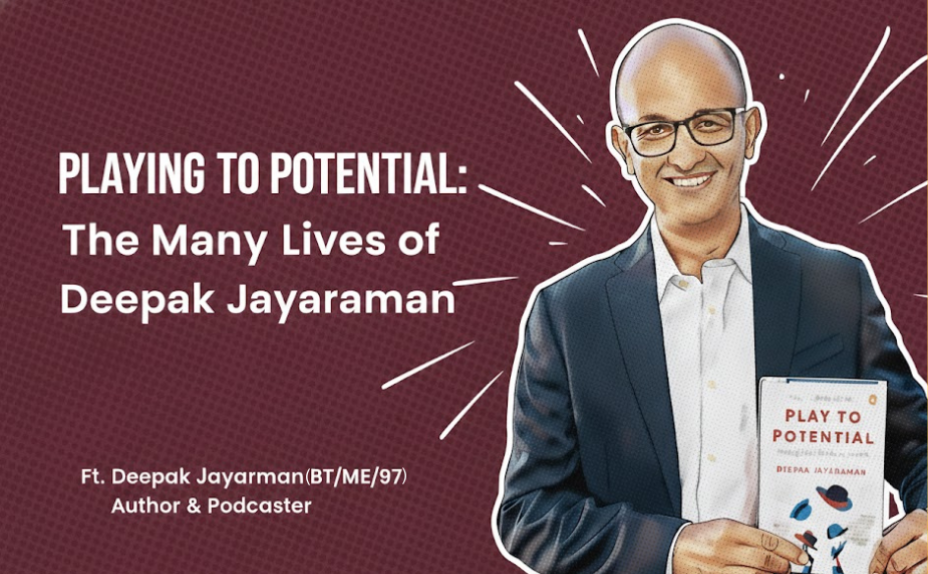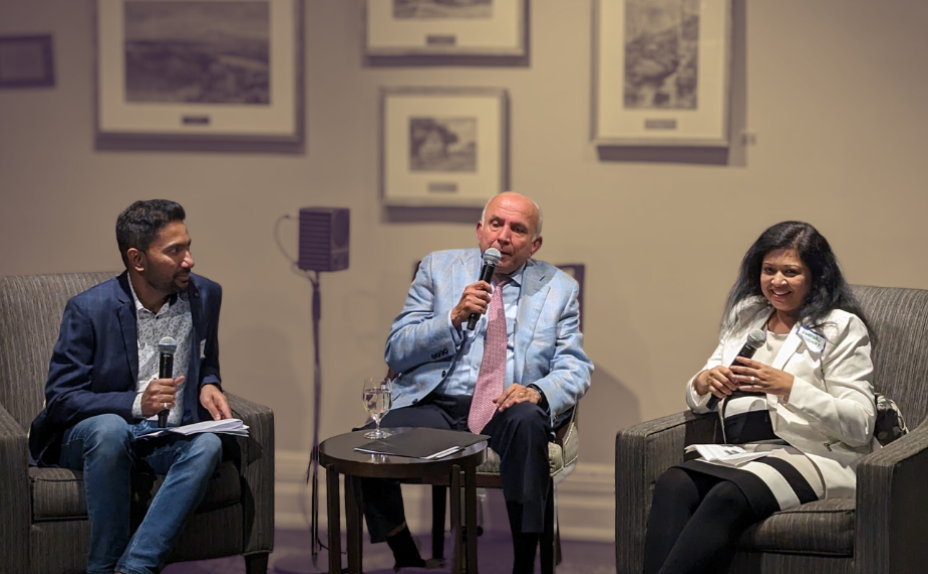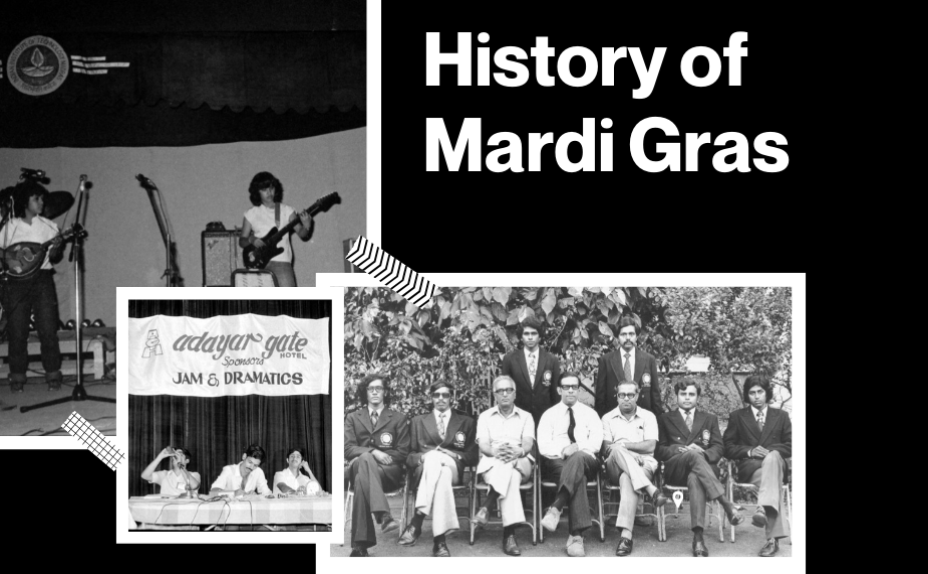
Dr. Thushara G.S. Pillai's Cosmic Journey
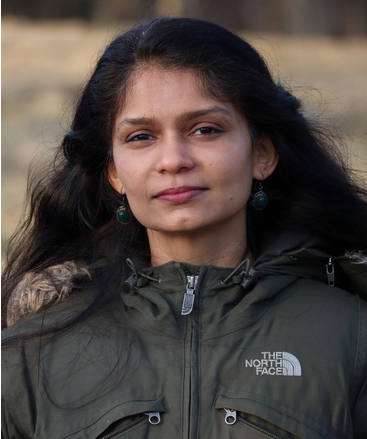 Two decades after her time at IIT Madras, Dr. Thushara G.S. Pillai reflects on her remarkable journey as an astronomer. From the banyan tree conversations on campus to her current role at MIT's Haystack Observatory, Dr. Pillai's path has been one of curiosity, resilience, and groundbreaking research. In this article, she shares her experiences, the challenges she faced as a woman in STEM, and the valuable lessons learned along the way.
Two decades after her time at IIT Madras, Dr. Thushara G.S. Pillai reflects on her remarkable journey as an astronomer. From the banyan tree conversations on campus to her current role at MIT's Haystack Observatory, Dr. Pillai's path has been one of curiosity, resilience, and groundbreaking research. In this article, she shares her experiences, the challenges she faced as a woman in STEM, and the valuable lessons learned along the way. How has your journey been since IIT Madras?
I am reminded of how it seems like just yesterday and yet covers over two decades! Starting at IIT Madras, I pursued a PhD in Astronomy at the Max-Planck Institute for Radio Astronomy (MPIfR) in Germany. My career path has taken me through postdoctoral positions at the Harvard-Smithsonian Center for Astrophysics and the California Institute of Technology. Following these roles, I worked as a research scientist at MPIfR and Boston University. I am now a staff astronomer at MIT’s Haystack Observatory with a research focus on the formation of molecular clouds and star formation within them.
Can you share a standout memory from your time at IIT Madras?
I know you might be expecting a profound experience, but here's a rather silly one. The IIT Madras campus is dotted with majestic banyan trees, and we used to have endless conversations under their shade and swing from their aerial prop roots, much like the monkeys on the campus.
As a woman on the IITM campus, how different was it? Did you face any challenges? If, yes, kindly share a few words on it.
Growing up, I was never made to feel that women were different, neither in my family nor at school. I grew up assuming that women did everything men did (except walking home safely after dark!) So, when I arrived at the IIT Madras campus and discovered that there was only one women's hostel compared to more than ten men's hostels (though I might be mistaken about the exact ratio at the time), I found the gender imbalance quite unsettling. It was indeed odd at times to be the only female in a certain setting. However, looking back, this experience served as good preparation for the challenges I would later encounter in my research career. Despite this imbalance, I never felt that I faced any bias due to my gender, neither in how faculty treated us women nor in the opportunities presented to us. This perception might have been biased by my confident upbringing. I recall the struggle of a highly talented classmate who could not persuade her parents to allow her to pursue a summer internship outside the state. That struck me as profoundly unfair. I believe that proactive counseling on campus could have made a significant difference for many in similar situations.
Can you tell us a bit about your journey into this field and what sparked your interest in astrophysics? As a woman have you ever faced any challenges in the field of astrophysics?
I think of it as two significant experiences that shaped my path. First, I had the fortune of finding an incredible mentor, Prof. P.C. Deshmukh, who not only offered me an internship but also guided me through my Master’s thesis during my Master’s degree in Physics. It was my first real foray into research, and it set the stage for my future endeavors. Alongside this academic guidance, I found an amazing friend, Sunitha Anupkumar, who shared an interest in astronomy. Her enthusiasm inspired me. This led me to a summer internship at the National Center for Radio Astronomy in Pune. Although my project was more engineering-focused, the internship exposed me to a wide array of topics within astronomy through various talks and discussions. This exposure was pivotal; I realized that if I am going to make research my career, I would do so in the field of astronomy.
Regarding challenges in the field as a woman, astronomy, like many STEM fields, has a gender imbalance. Beyond the numerical disparity, the standard career trajectory in astronomy presents its own unique set of challenges for women. It's not uncommon to find oneself as the only woman conducting observations at remote observatories around the world. These assignments often require not just intellectual rigor but also physical stamina to endure conditions that can be demanding, such as high altitudes or extended observing hours. However, these early formative experiences helped build a certain resilience and determination, and these have been invaluable later on in navigating the challenges of a career in astronomy.
What was one of the most significant lessons you learned during your years here?
One was certainly the power of dreaming big independent of your background and the importance of having mentors who believe in you. This experience taught me that it's possible to compete with the best in any field, as long as you have the right support and guidance. Equally important was the realization that true friendship is invaluable, especially when you are far away from home and family. These friendships became my support system, providing both emotional and intellectual encouragement.
Your thoughts on how women can break the glass ceiling and progress in their careers.
As we navigate through 2024, it's likely that women will continue to find themselves in the minority in various settings. However, it's essential to perceive this not as a barrier but as a numerical ratio—one that we have the power to influence. The key is to leverage every opportunity, whether direct or indirect, to strive towards a more balanced representation for other equally deserving women in your field who may not have had your opportunities. My journey has also taught me the importance of raising my voice when necessary, ensuring it's heard above the predominantly male background noise. Encountering negative feedback is almost inevitable, but I've learned to use such critiques as a tool to refine my arguments and reinforce my initial stance (if right) through positive, constructive actions.
Moreover, experience (rather missteps) has shown me the value of balancing the tone of my message—being assertive in what I say but thoughtful in how I say it. This approach has often opened doors and ears that seemed previously closed.
What are your words of advice for women who are just starting their careers?
Finding yourself in a career that ignites your passion is a precious achievement. If this is where you are, it is crucial not to let societal or familial pressures dictate the terms of your journey, particularly when it comes to traditional expectations placed upon women. My own path was fortunately free from pressure to conform to such norms, but I recognize my fortune in this regard.
The societal script often reads: "You should get married," followed by "You should have children," and perhaps even "You should give up your job to take care of your children." If you attempt to satisfy these external expectations, even when they come from loved ones, it's a path that rarely leads to fulfillment. The demands, the shoulds, and shouldn't, they seemingly have no end.
I reached a personal career high around the time I became a mother. Balancing motherhood, especially in circumstances where your support system is limited to your spouse, is an incredibly challenging endeavor. The guilt of taking just an extra minute for yourself can be overwhelming.
However, I try to fight these demons by reminding myself that pursuing my passion and fulfilling my personal and professional aspirations are not selfish acts but acts of strength. Every time you stand firm against societal expectations, you're not only shaping your destiny but also setting a powerful example for others around you. Remember, your journey can inspire and empower other women to follow their dreams, to break free from prescribed roles, and to create their own narratives of success and fulfillment.
Is there something that you wish had been different when you were a student or when you were just starting out in your career?
While my experiences shaped me into the person I am today, a longer look back reveals opportunities for systemic improvements that could have made a significant difference, particularly for students from less privileged backgrounds. One is that of the rigor of undergraduate courses in STEM at public universities. Enhancing the curriculum to challenge and prepare students more effectively for the demands of higher education is invaluable. A stronger foundation in these subjects early on is crucial, not for receiving grades, but for developing essential skills like critical thinking and problem-solving.
The absence of career counseling focused on research careers and the realities of pursuing such paths left many students, navigating the future with limited guidance. Understanding what a career in research entails, the challenges one might face, and the steps required to succeed is vital information that could help shape aspiring scientists' futures. Additionally, the lack of DEI initiatives to encourage women and other underrepresented groups to pursue science careers was a notable gap. Creating an environment that actively welcomes, values, and supports diversity in science is essential.
Could you share your experience coping with failure and overcoming it?
I can say that my path to where I am today has been far from straightforward. When I left the campus of IIT Madras, if you had asked me if I envisioned myself in my current position, my answer would have been “No.” I was deeply passionate about my profession, and the challenges it presented, were aspects I embraced wholeheartedly.
However, a significant personal loss at a critical moment in my career brought everything to a standstill, casting doubt on my ability to continue on my chosen path. This period of my life was fraught with uncertainty and introspection. I took a break and that was crucial because it made me realize the value of what I currently have. The support and encouragement I received during this time from kind mentors and my husband were instrumental in pulling me through. I now think that this challenging phase instilled in me a more daring attitude, prompting me to make a slight pivot in my research focus. This change, although minor, opened new doors for me, leading to lucky breaks such as highly competitive research grants. These opportunities were pivotal for my career and in shaping my self-perception as a successful astronomer. This experience taught me that coping with failure and overcoming it isn't just about resilience in the face of adversity, but also about the willingness to adapt, the importance of support systems, and sometimes, the courage to take a new direction when the path you're on is no longer challenging.
Bio:
Dr. Thushara G.S. Pillai is an astronomer at the MIT Haystack Observatory in Massachusetts. She completed her M.Sc in Physics at the IIT Madras in 2002 and went on to earn her Ph.D. in Astronomy from the Max Planck Institute for Radio Astronomy in Bonn, Germany. She was awarded the Otto Hahn Medal from the Max Planck Society for her Ph.D. work, which focuses on the early phase of high-mass star formation. Dr. Pillai received the SMA fellowship at the Harvard-Smithsonian Center for Astrophysics and she was a CARMA fellow at Caltech. She has also served as a research scientist at both the Max Planck Institute for Radio Astronomy and Boston University. Her research is primarily centered on understanding the multi-scale physics of interstellar medium processes, including the role of magnetic fields in star formation. To this end, she utilizes a range of observational facilities, spanning near-infrared to radio wavelengths, to probe these complex astrophysical phenomena.


